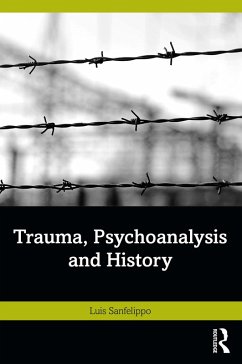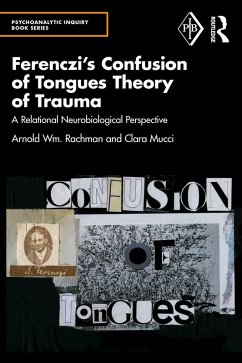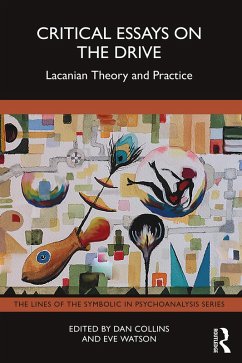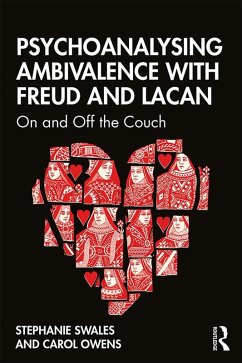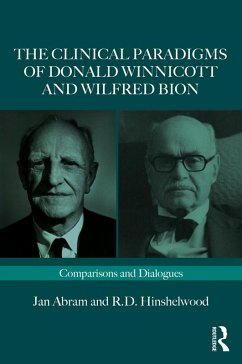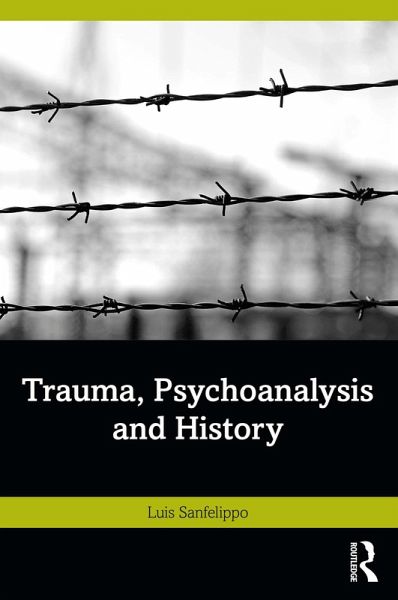
Trauma, Psychoanalysis and History (eBook, ePUB)
Versandkostenfrei!
Sofort per Download lieferbar
33,95 €
inkl. MwSt.
Weitere Ausgaben:

PAYBACK Punkte
17 °P sammeln!
Located at the crossroads of psychoanalysis and history, this book investigates the ambiguous concept of trauma and the changes to its formulation and use between the years 1866 and 1939.Luis Sanfelippo introduces the original conceptions of trauma outlined by Sigmund Freud, Pierre Janet and their contemporaries, before investigating how the meaning of this concept was influenced and informed by large-scale historical events like the First World War. Trauma, Psychoanalysis and History investigates the multiple problems linked to this fetishised category and how it has developed over time. Sanf...
Located at the crossroads of psychoanalysis and history, this book investigates the ambiguous concept of trauma and the changes to its formulation and use between the years 1866 and 1939.
Luis Sanfelippo introduces the original conceptions of trauma outlined by Sigmund Freud, Pierre Janet and their contemporaries, before investigating how the meaning of this concept was influenced and informed by large-scale historical events like the First World War. Trauma, Psychoanalysis and History investigates the multiple problems linked to this fetishised category and how it has developed over time. Sanfelippo also considers the historiographical and conceptual problems raised by the application of trauma to collective memory and contemporary history, reflecting on what this means for historiography.
Trauma, Psychoanalysis and History will be of great interest to students in training for psychotherapy and mental health practice, trained psychoanalysts, as well as academics and scholars of psychoanalytic studies, the history of psychology, trauma studies and modern history.
Luis Sanfelippo introduces the original conceptions of trauma outlined by Sigmund Freud, Pierre Janet and their contemporaries, before investigating how the meaning of this concept was influenced and informed by large-scale historical events like the First World War. Trauma, Psychoanalysis and History investigates the multiple problems linked to this fetishised category and how it has developed over time. Sanfelippo also considers the historiographical and conceptual problems raised by the application of trauma to collective memory and contemporary history, reflecting on what this means for historiography.
Trauma, Psychoanalysis and History will be of great interest to students in training for psychotherapy and mental health practice, trained psychoanalysts, as well as academics and scholars of psychoanalytic studies, the history of psychology, trauma studies and modern history.
Dieser Download kann aus rechtlichen Gründen nur mit Rechnungsadresse in A, B, BG, CY, CZ, D, DK, EW, E, FIN, F, GR, HR, H, IRL, I, LT, L, LR, M, NL, PL, P, R, S, SLO, SK ausgeliefert werden.




